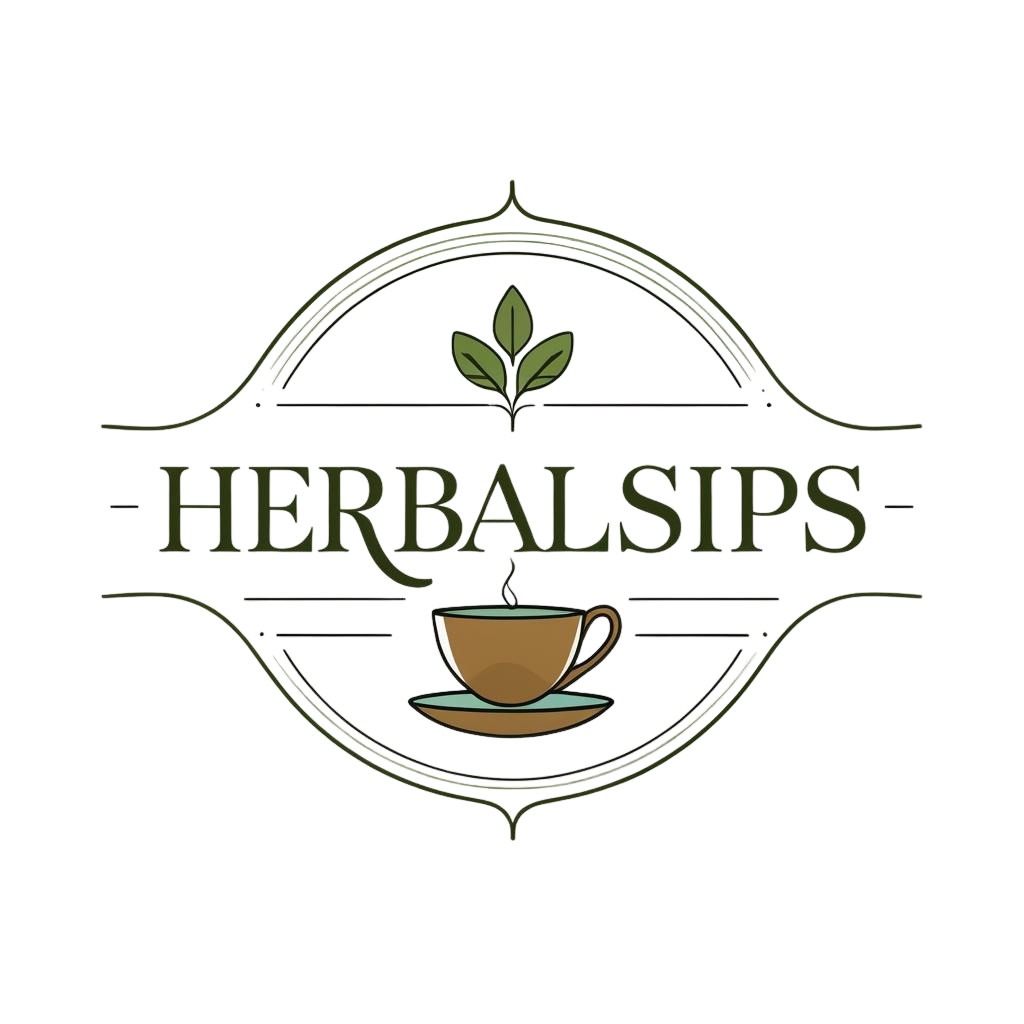20 Health Benefits of Drinking Herbal Teas

Here are 20 incredible health benefits of drinking herbal Teas that not many talks about. But before we dive into that, lets first look at what herbal teas are.
Herbal teas, also known as tisanes, are beverages made by infusing herbs, spices, flowers, or roots in hot water. Unlike traditional tea from the Camellia sinensis plant (green, black, oolong), herbal teas are naturally caffeine-free and come in a variety of blends, offering both flavor and health perks.
A Brief History of Herbal Tea Consumption
The use of herbal teas dates back thousands of years, with roots in ancient Chinese, Egyptian, and Ayurvedic medicine. Healers used plant infusions to treat ailments, boost energy, and promote longevity. Over time, these traditions spread across the globe, becoming staples in many cultures.
Why Herbal Teas Are Gaining Popularity Today
Today, herbal teas have surged in popularity as more people turn to natural remedies for wellness. From detoxes to better sleep, these soothing brews offer a plant-based approach to health.
Nutritional Profile of Herbal Teas
Key Vitamins and Minerals
Different herbs provide a range of nutrients including:
- Vitamin C (rosehip, hibiscus)
- Vitamin A (nettle leaf, peppermint)
- Iron (dandelion, nettle)
- Calcium (alfalfa, chamomile)
Antioxidants and Bioactive Compounds
Herbal teas are rich in antioxidants such as flavonoids, polyphenols, and tannins, which protect the body against oxidative stress and chronic disease.
1. Boosts Immune System
Teas Rich in Immune-Boosting Properties
Herbal teas can help your body fight off illnesses and infections naturally.
Echinacea
Known for its antiviral effects, echinacea tea is a go-to during cold and flu season.
Elderberry
Rich in antioxidants and vitamin C, elderberry tea helps reduce the severity of viral infections.
2. Improves Digestion
How Herbal Teas Aid the Gut
Sipping herbal teas after meals can relieve bloating, gas, and indigestion.
Peppermint
Peppermint tea relaxes the digestive tract muscles and alleviates IBS symptoms.
Ginger
Ginger tea boosts bile production and speeds up gastric emptying, easing nausea and indigestion.
3. Reduces Inflammation
Anti-inflammatory Ingredients in Teas
Chronic inflammation is linked to many diseases, but herbal teas can provide natural relief.
Turmeric
Curcumin, the active compound in turmeric, is a potent anti-inflammatory.
Chamomile
Chamomile tea contains apigenin, which helps reduce inflammation and calm the body.
4. Supports Heart Health
Herbs that Lower Cholesterol and Blood Pressure
Herbal teas support cardiovascular wellness by improving circulation and lowering harmful lipids.
Hibiscus
Hibiscus tea has been shown to significantly lower blood pressure in clinical studies.
Rooibos
This South African tea is packed with antioxidants that protect heart cells from damage.
5. Aids in Weight Loss
How Herbal Teas Stimulate Metabolism
Certain teas increase fat oxidation and reduce water retention.
Dandelion
Dandelion tea acts as a diuretic, reducing bloating and promoting detoxification.
Green Tea (Herbal Blend)
Blends combining herbs with green tea boost thermogenesis and support fat burning.
6. Enhances Skin Health
Herbal Teas for a Natural Glow
These teas work from the inside out to give your skin a radiant appearance.
Spearmint
Spearmint tea may reduce acne by lowering androgen levels in the body.
Rosehip
Rich in vitamin C and collagen-boosting antioxidants, rosehip tea promotes skin elasticity.
7. Relieves Stress and Anxiety
Calming Herbal Blends
A warm cup of herbal tea can be the perfect stress reliever.
Lavender
Lavender tea calms the nervous system and reduces cortisol levels.
Lemon Balm
Known for its mood-stabilizing effects, lemon balm tea eases anxiety and restlessness.
8. Improves Sleep Quality
Herbal Teas with Sedative Effects
If you struggle to fall asleep, certain herbal teas can act as natural sleep aids.
Valerian Root
Valerian helps increase GABA in the brain, promoting deep, restful sleep.
Passionflower
Passionflower tea has mild sedative effects, easing insomnia and calming the mind.
9. Regulates Blood Sugar Levels
Herbs That Help Diabetics
Herbal teas can assist in managing blood sugar naturally.
Cinnamon
Cinnamon tea improves insulin sensitivity and glucose metabolism.
Fenugreek
Fenugreek seeds steeped in tea may help reduce fasting blood sugar levels.
10. Detoxifies the Body
Natural Detoxification Support
Herbal teas flush toxins and support liver and kidney function.
Milk Thistle
Milk thistle contains silymarin, a powerful liver-protective compound.
Nettle Leaf
Nettle tea supports the kidneys in flushing out metabolic waste.
11. Fights Cold and Flu Symptoms
Immune-Supporting and Decongestant Teas
When you’re under the weather, herbal teas can provide comforting relief.
Thyme
Thyme tea is a natural expectorant that helps loosen mucus and soothe coughs.
Licorice Root
Licorice root acts as a demulcent, coating the throat and easing inflammation.
12. Boosts Energy Without Caffeine
Natural Stimulants and Adaptogens
For those sensitive to caffeine, herbal teas offer gentle energy support.
Ginseng
Ginseng tea increases energy levels, enhances stamina, and fights fatigue.
Yerba Mate
Although technically not a true herbal tea, yerba mate offers a smooth energy lift without the jitters.
13. Enhances Cognitive Function
Brain-Boosting Herbs
Certain teas can help improve memory, focus, and mental clarity.
Gotu Kola
Known as the “herb of longevity,” gotu kola improves cognitive function and brain circulation.
Ginkgo Biloba
Ginkgo biloba tea supports memory and may help prevent age-related mental decline.
14. Balances Hormones
Hormone-Regulating Herbal Teas
Herbal teas can gently regulate hormonal fluctuations, especially in women.
Chasteberry
Often used for PMS and menopause, chasteberry balances progesterone levels.
Ashwagandha
An adaptogenic herb, ashwagandha helps regulate cortisol and thyroid function.
15. Alleviates Menstrual Discomfort
Herbs for PMS and Cramps
Several herbal infusions soothe menstrual cramps and mood swings.
Raspberry Leaf
Raspberry leaf tea tones the uterus and reduces menstrual cramps.
Cramp Bark
As the name suggests, this herb relieves uterine muscle spasms and tension.
16. Strengthens Bones and Joints
Nutrient-Dense Herbal Blends
Teas rich in minerals support bone health and reduce joint pain.
Horsetail
High in silica, horsetail tea helps build strong bones and connective tissue.
Alfalfa
Alfalfa is a source of vitamin K and calcium, essential for bone density.
17. Promotes Healthy Hair Growth
Herbal Teas That Nourish Follicles
Some teas stimulate hair growth and improve scalp health from the inside out.
Nettle
Nettle tea is rich in iron and sulfur, which promote stronger, healthier hair.
Rosemary
Rosemary tea increases circulation to the scalp and reduces dandruff.
18. Supports Liver Function
Detoxifying Liver Tonics
The liver is your body’s detox powerhouse, and herbal teas can keep it functioning well.
Dandelion Root
Dandelion root tea stimulates bile production, aiding liver detox and digestion.
Artichoke Leaf
Artichoke tea supports liver enzyme production and cholesterol regulation.
19. Improves Respiratory Health
Herbal Relief for Breathing Issues
Herbal teas can open airways, ease congestion, and soothe lung irritation.
Mullein
Mullein tea is a traditional remedy for respiratory infections and bronchitis.
Eucalyptus
Inhaling steam from eucalyptus tea or sipping it can help open sinuses and relieve congestion.
20. Enhances Mood Naturally
Uplifting Herbal Infusions
When you’re feeling low, a mood-lifting tea can make a big difference.
Rhodiola
Rhodiola tea is an adaptogen that reduces fatigue and enhances mood balance.
St. John’s Wort
Used for centuries to ease depression, St. John’s Wort helps improve emotional well-being.
Tips for Choosing and Preparing Herbal Teas
Fresh vs Dried Herbs
- Fresh herbs often provide a more vibrant flavor but have a shorter shelf life.
- Dried herbs are more concentrated and longer-lasting.
Brewing Methods
- Use boiling water for roots and barks.
- Use hot (not boiling) water for leaves and flowers.
- Steep for 5–10 minutes to extract full benefits.
Dosage and Safety
Always start with one cup per day and observe any reactions. Consult a healthcare provider if you’re taking medication or pregnant.
Potential Side Effects and Interactions
Who Should Be Cautious
- Pregnant or breastfeeding women
- People with liver or kidney issues
- Those on blood thinners, antidepressants, or diabetes medications
Herbs to Avoid During Pregnancy
- Pennyroyal
- Mugwort
- Wormwood
- Black cohosh (unless supervised)
Always research or consult an herbalist before introducing a new tea into your routine.
FAQs About Herbal Teas
1. Can I drink herbal teas every day?
Yes, most herbal teas are safe for daily consumption. However, moderation is key—stick to 2-3 cups a day unless advised otherwise.
2. What is the best herbal tea for anxiety?
Chamomile, lemon balm, and lavender teas are excellent for relieving stress and anxiety.
3. Are herbal teas safe during pregnancy?
Some are, like ginger and raspberry leaf (later stages), but many should be avoided. Always check with your doctor first.
4. Can herbal teas help with weight loss?
Yes, teas like green tea, ginger, and dandelion can support metabolism and reduce bloating.
5. Are there any herbal teas that help with migraines?
Feverfew and peppermint teas may help reduce the frequency and intensity of migraines.
6. Is it okay to mix different herbal teas together?
Yes! Blending herbs can enhance benefits, but make sure they don’t interact negatively or cause allergies.
Conclusion: Sip Your Way to Better Health
Drinking herbal teas isn’t just a soothing ritual—it’s a smart wellness choice. With powerful benefits ranging from better sleep and clearer skin to immune support and mood enhancement, herbal teas are nature’s way of helping us thrive. Whether you’re new to tisanes or a seasoned sipper, there’s always a perfect blend waiting to nourish your body and mind.
